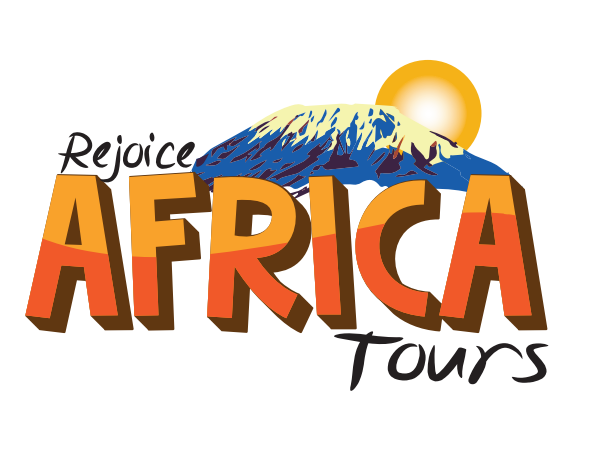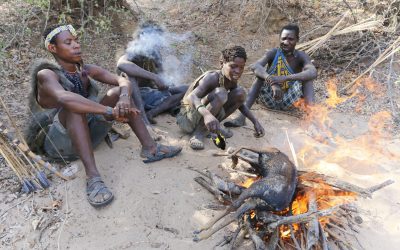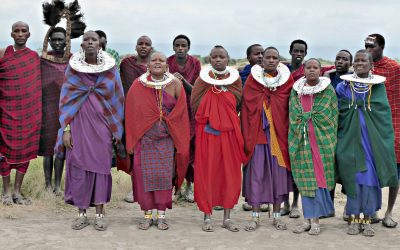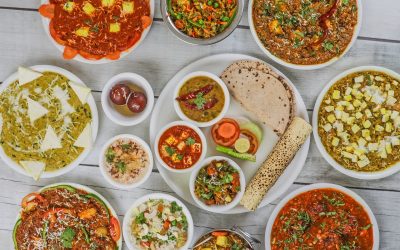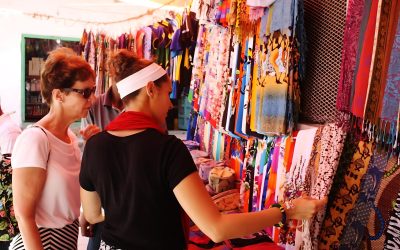Description
Embark on a flavorful and immersive 4-day journey through Zanzibar, where centuries-old Swahili culture meets the tantalizing aromas of island cuisine. This tour blends heritage, cuisine, and local life—allowing you to uncover Zanzibar’s history in Stone Town, explore spice plantations, cook with locals, and unwind on white-sand beaches with the scent of cloves in the air.
🗓️Best Time to Visit
- June to October (Dry Season)
- Ideal for combining cultural tours with safaris and trekking.
- Easier access to remote tribal regions like the Hadzabe, Maasai, and Chaga.
- Crisp air and golden light—perfect for photography.
- November to February (Short Rains & Festival Season)
- Lush landscapes and fewer tourists.
- Great for coastal Swahili culture, spice tours, and events like Sauti za Busara in Zanzibar.
- Excellent for village visits and cultural immersion.
- March to May (Long Rains)
- Travel to rural areas may be challenging due to muddy roads.
- Some lodges and camps may close temporarily.
📸 Photography & Videography Tips
- Golden Hour Magic: Shoot early morning or late afternoon for rich tones and soft shadows.
- Respectful Portraits: Always ask before photographing people—especially elders or spiritual leaders.
- Gear Must-Haves:
- DSLR/mirrorless camera with zoom and wide-angle lenses
- Tripod or monopod for interviews and low-light scenes
- Extra batteries, memory cards, and dust protection
- Storytelling Shots:
- Focus on hands weaving, cooking, or crafting
- Capture rituals, dances, and market life from multiple angles
- Use short video interviews or ambient audio for depth
🎒Packing Essentials
Clothing
- Breathable, neutral-colored fabrics (cotton, linen)
- Modest attire for village visits and religious sites
- Light jacket for cool evenings
- Comfortable walking shoes or sandals
Gear
- Reusable water bottle and snacks
- Sunscreen, insect repellent, hand sanitizer
- Swahili phrasebook or translation app
- Journal or sketchpad for reflections
- Small gifts (e.g., pens, postcards) for hosts or guides
Health & Safety
- First aid kit with basics
- Malaria prophylaxis and vaccination certificates
- Travel insurance and copies of key documents
🛏️ Accommodation Options
| Type | Description | Ideal For |
|---|---|---|
| Eco-lodges & Cultural Camps | Locally run, near villages (e.g., Olpopongi Maasai Village, Kisima Ngeda) | Immersive storytelling, traditional meals |
| Homestays | Stay with families in Mto wa Mbu, Marangu, or Mulala | Language exchange, cooking, farming |
| Boutique Guesthouses | Stylish, locally inspired (e.g., Bagamoyo, Pangani) | Swahili heritage, coastal culture |
| Mobile Camps | Flexible setups near Lake Eyasi (Hadzabe, Datoga) | Off-grid tribal exploration |
✅ Dos and ❌ Don’ts
✅ Dos
- Greet warmly with a handshake or “Shikamoo” for elders
- Dress modestly, especially in villages and religious areas
- Use your right hand for eating, greeting, and giving gifts
- Ask permission before taking photos—especially of people or sacred sites
- Accept offered drinks or food graciously
- Learn basic Swahili phrases to build rapport
- Tip guides and hosts respectfully
❌ Don’ts
- Don’t touch food or people with your left hand
- Avoid public displays of affection—especially in conservative areas
- Don’t hand out sweets or gifts to children—it encourages begging
- Don’t wear camouflage clothing—it’s restricted for civilians
- Don’t take photos without consent—especially of Maasai or Hadzabe communities
- Don’t rush greetings—small talk is a sign of respect
- Don’t walk alone at night in unfamiliar areas

Mr. Petro Ahham
MESO Founder Member and Director
is a seasoned CSOs facilitator, eco-cultural tourism expert, and human rights activist with leadership roles in MESO, ANGONET, TEITI-MSG, NACoNGO, and EACSOF, blending science, advocacy, and regional governance experience.
Tour Schedule
Day 1: Arrival & Stone Town Discovery
Morning
Welcome & Check-in
- Arrive at Abeid Amani Karume International Airport
- Transfer to your boutique hotel in Stone Town (Approx. 8 km / 5 miles)
- Welcome drinks and program briefing
Afternoon
Guided Walking Tour of Stone Town (UNESCO Heritage Site)
- Explore the Old Fort, House of Wonders, and Freddie Mercury’s birthplace
- Visit local markets, narrow alleys, and historical homes
- Learn about Swahili architecture and Oman-Arab influences
Evening
Sunset Dinner by the Sea
- Indulge in Zanzibari seafood at a beachfront restaurant
- Optional: Try fresh sugarcane juice or coconut wine
Day 2: Spices & Swahili Flavors
Morning
Zanzibar Spice Plantation Tour
- Hands-on exploration of cloves, cardamom, vanilla, and nutmeg farms
- Learn their culinary and medicinal uses
- Tasting of exotic fruits (jackfruit, starfruit, lychee)
Afternoon
Swahili Cooking Experience
- Join a local chef in preparing a Zanzibari lunch using harvested spices
- Learn how to make dishes like Biryani, Urojo soup, and Mkate wa Mofa
- Enjoy your creation with fresh tropical juice
Evening
Sunset Dhow Cruise
- Traditional sailing boat excursion with local music
- Light Swahili snacks and fresh coconut offered on board
Day 3: Culture & Community
Morning
Jozani Forest Exploration
- Walk through Zanzibar’s only national park (about 35 km / 22 miles from Stone Town)
- Spot rare endemic Red Colobus monkeys and towering mahogany trees
Afternoon
Village Visit & Cultural Exchange
- Visit a nearby coastal village (e.g., Jambiani or Makunduchi)
- Learn about daily life, seaweed farming, and traditional dhow making
- Share stories and assist in preparing a local lunch
Evening
Cultural Performance & Dinner
- Enjoy Taarab music and dance under the stars
- Dine on grilled octopus, cassava, and coconut rice
Day 4: Beach Bliss & Farewell
Morning
Free Time on the Beach
- Relax at Kendwa or Nungwi Beach (approx. 55–60 km / 34–37 miles from Stone Town)
- Optional water activities: snorkeling, paddleboarding, or diving
Afternoon
Farewell Lunch & Local Shopping
- Enjoy a final seafood meal on the beach
- Shop for spices, handmade crafts, and kanga fabrics as souvenirs
Evening
Departure
- Airport transfer and assistance with check-in
Request Quote
Frequently Asked Questions (FAQs)
1. Culinary Options and Special Diets
- Vegetarian, vegan, gluten-free, and halal-friendly meals are available upon request.
2. Physical Activity Level
- Moderate walking is involved. Excursions are suitable for most fitness levels.
3. Best Time to Travel
- June to October and December to February offer the best balance of weather and festival energy.
4. Are Cooking Lessons Interactive?
- Yes, they are fully hands-on, guided by local chefs using fresh ingredients from the spice farms.
5. Suitable for Families or Solo Travelers?
- Absolutely. The program includes cultural elements for all ages and flexibility for solo experiences.
6. Is Internet Access Available During the Tour?
- Most accommodations offer Wi-Fi. However, villages and forest areas have limited connectivity.
7. Currency and Payments
- Tanzanian Shilling (TZS) is preferred. Major hotels accept USD and credit cards, but local markets are cash-based.
Zanzibar Tour Pricing Terms
Included in the Safari Price:
- 3 nights’ boutique accommodation
- All meals and cooking experiences listed in the itinerary
- Transfers and transportation in air-conditioned vehicles
- Local guide services
- All entrance fees, activities, and cultural visits
- Dhow sunset cruise and beach access
Not Included in the Safari Price:
- International airfare to/from Zanzibar
- Personal travel insurance
- Alcoholic beverages
- Optional water sports fees
- Tips for guides and drivers
For your information, upgrade options for the safari activities and accommodation can be discussed with our safari consultant, who will be delighted to assist you.
